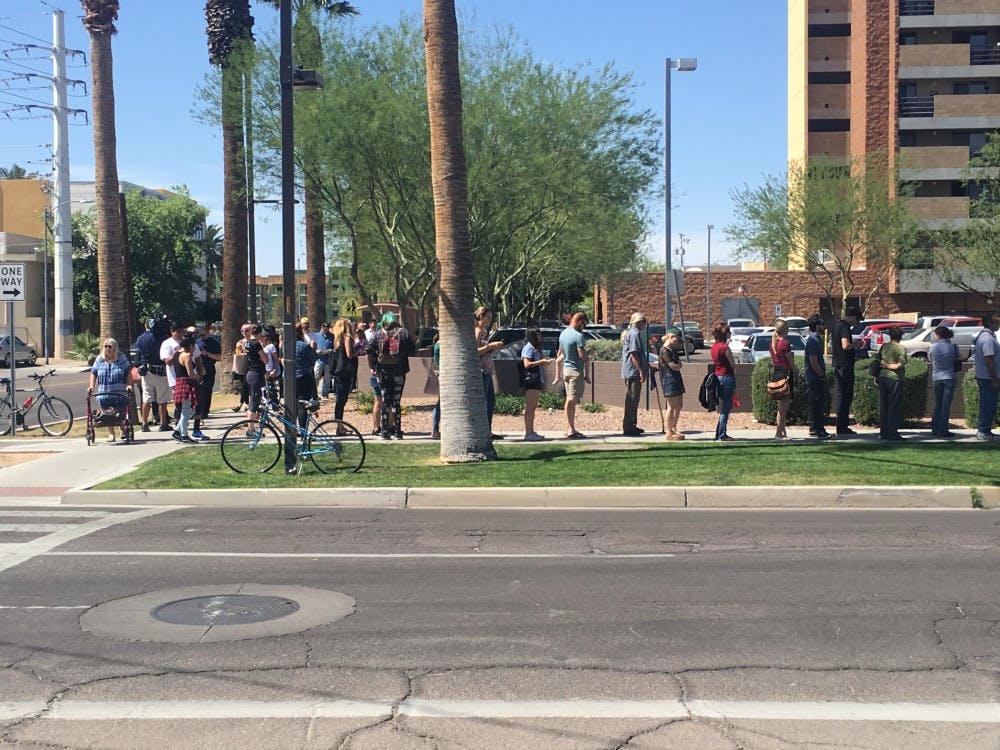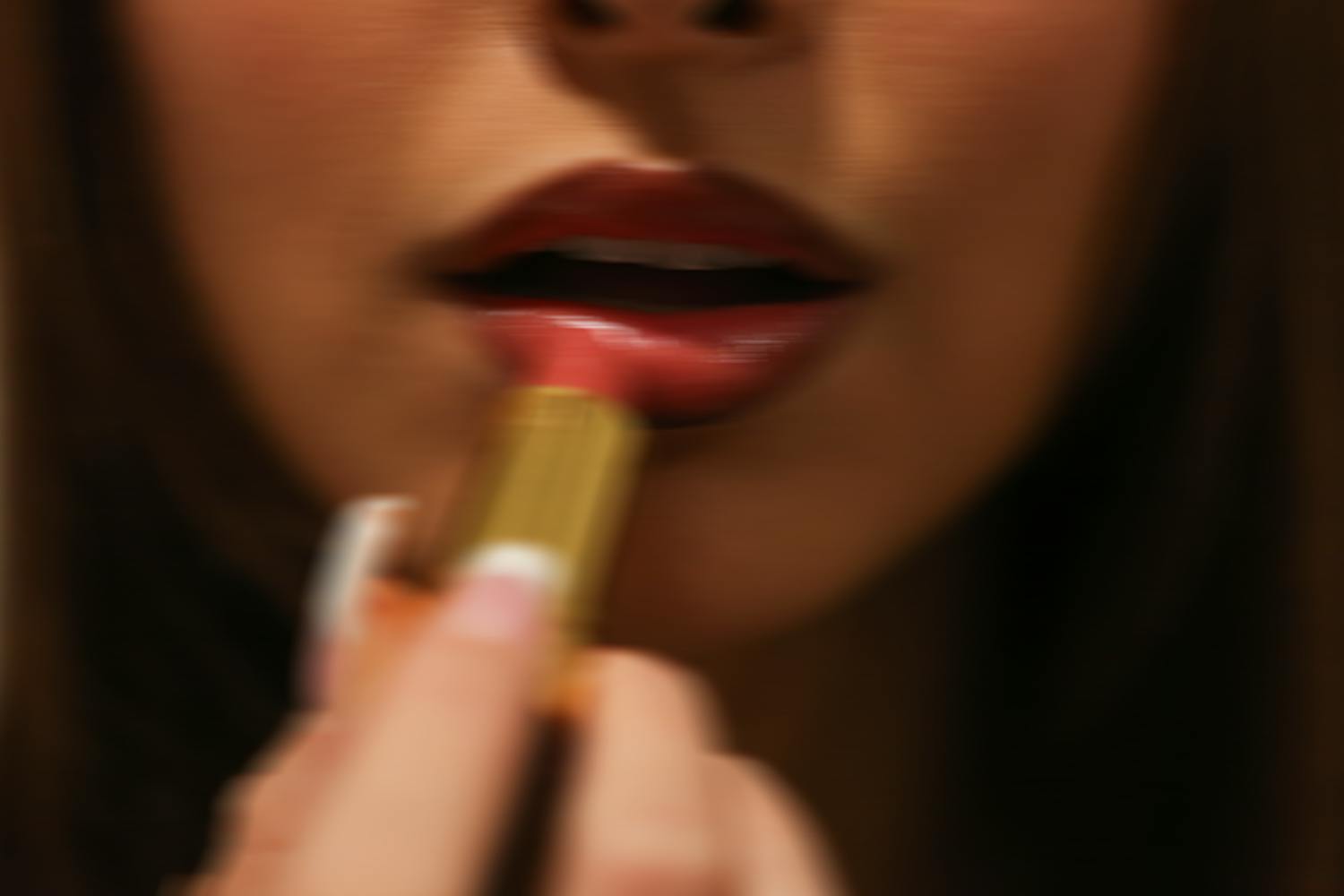Thousands of Arizonans went to the polls Tuesday to cast their vote, but for some, that meant waiting in line for up to five hours to participate in the state's voting process.
The number of polling places open in Maricopa County during the presidential preference election has plummeted over the past three primaries, decreasing from about 400 polling centers in 2008, 200 centers in 2012 and only 60 during Tuesday's election.
“With the excitement and the interest that we have seen in this election, I am anticipating that we will have in Maricopa between 60 and 65 percent turnout, and that includes those people going to those polls," Maricopa County Recorder Helen Purcell told Cronkite News in a pre-election news conference Monday.
This estimate was higher than the county’s peak of a 51 percent voter turnout during the state's 2008 election.
“Since we’re anticipating bigger groups at the polling places, that means more people,” Purcell said. “We’ve had to hire poll workers, we’ve had to hire people to process the ballots that you’re seeing in there.”
However, following the news conference, the Arizona Republic quoted Purcell Wednesday morning who said she takes full responsibility for Tuesday's voting issues.
We apologize for the long lines and appreciate your patience! Remember, all Independents are not eligible to vote in the election today.
— Helen Purcell (@RecorderPurcell) March 22, 2016
“We certainly made bad decisions, and having only 60 polling places, didn’t anticipate there would be that many people going to the polling places,” Purcell said. “We were obviously wrong — that’s my fault. So we’ll certainly look at that for future elections.”
Despite these issues, Purcell said she is not going to resign.
Journalism sophomore Sydnee Schwartz said she waited in line for five hours to cast her vote.
“I think that what happened put a lot of questions and doubt in people's minds that our system is working to its fullest extent,” Schwartz said. “Yeah, mail-in ballots are a thing, and what I'll probably use for the general election, but for people like me who had no idea what they were doing their first time, it was easier to do it in person.”
Schwartz said that after an hour of waiting, she felt committed to casting her vote.
“It was also my very first time voting, and I wanted to follow through with it, especially since this is an important election,” Schwartz said.
However, many others with previous obligations were not able to wait in line like Schwartz.
Marci Kaplan, a Scottsdale voter, said many people have a difficult time waiting so long in lines because of their personal schedules.
“It’s not fair,” Kaplan said while waiting in line Tuesday. “I have a class tonight.”
Pastors and other church personnel at the North Scottsdale United Methodist Church, which hosted the polling place where people such as Kaplan waited to vote, were among those dealing with election chaos.
EMTs had to be called out to assist someone who had been waiting in the heat in order to vote.
Sharon MacVean, another voter in line at the church on Tuesday and a retired clergy worker, said she and her husband never received their mail-in ballots, though they are registered as early voters.
“The last two or three years, we sent in an early ballot,” MacVean said. “We never received it (this year). We got a call saying it happened to our name.”
Enrique Gutierrez, the communications director for the Arizona Democrats, confirmed that missing early voting ballots was a problem that multiple voters had experienced.
"We directed them to the county, but we have a long list of people that have been calling to complain about things like that," Gutierrez said.
The Arizona Democrats were also investigating the fact that Democrats who attempted to vote were turned away after being told they were newly registered as Independents.
If you experienced problems voting today please let us know here >> https://t.co/XTgVDrBstp
— AZ Democratic Party (@AZDemParty) March 22, 2016
https://t.co/MKWWnjFKau
“We’ve gotten calls from lifelong Democrats saying this happened to them,” Gutierrez said.
Gutierrez said there has been pressure from the legislature for the political parties to run the presidential preference election.
“This might be the last presidential preference election in Arizona if certain legislatures have their way,” Gutierrez said. “They think it’s a financial burden on the state.”
The election cost the state just under $10 million.
The lines that resulted from the reduced polling places, a plan that was approved by the state's Board of Supervisors, upset many voters including Venus Villamgna, a clerical worker from Scottsdale.
“It sucks that is easier to vote for American Idol than your president,” Villmagna said.
Related links:
Here's how to register to vote for your state's presidential primary
Arizona voter registration leaps by 47,000
Reach the reporter at lmarsha6@asu.edu or follow @lmarsh2014 on Twitter.
Like The State Press on Facebook and follow @statepress on Twitter




